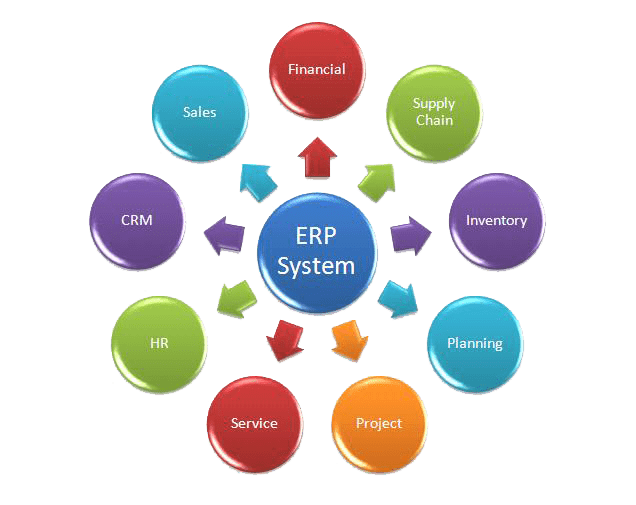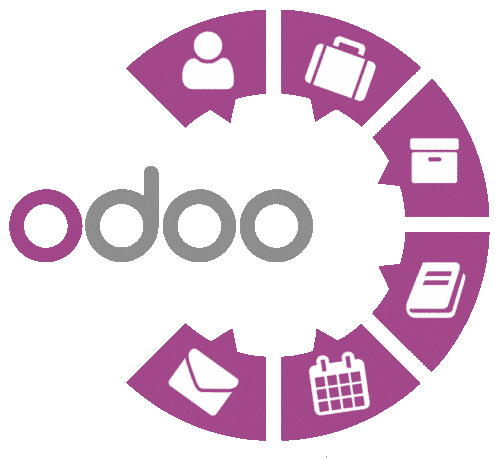What is an Open Source ERP?
ERP stands for Enterprise Resource Planning. And Open Source ERP is a software system whose source code is publicly available. So, everyone can use and customize an open-source ERP according to their own needs and requirements. However, to modify the existing source code of an ERP system, the user needs a lot of development skills, especially in open source technologies.
For example, Odoo Open Source ERP provides many built-in modules such as Point of Sale, Accounting, HR, Project, etc. with its own default features. The users can try out the latest versions of odoo through runbot odoo. However, users can modify their source code and use Odoo as per their needs. But if the modification or customization process is not done perfectly, then the user may experience unexpected losses.
In this blog, you will learn
What is Opensource ERP?
What is Odoo?
Why is Odoo becoming more and more powerful?
Who can Implement Odoo for you? 1. Odoo ERP Developer
2. Odoo ERP Techno Functionalist

What is Odoo?
Odoo Also known as Open ERP was founded by Fabien Pinckaers in 2005. The word Odoo is the acronym of On-Demand Open Object. Odoo is a large collection of business-related applications and modules like CRM, Sales management, E-commerce, Warehouse management, Purchase management, Accounting suit, Manufacturing management, HRMS, etc. All these basic modules collectively called Enterprise Resource Planning software.
Apart from its basic modules, Odoo has more than 14,000 third-party Apps/Plugins available in its app store. Each of them is custom-built for different user needs. Today, Odoo is one of the widely used open-source ERP solutions in the market.
Why is Odoo becoming more and more popular?
There are some key points for this reason.
1) It is open source:
No proprietary fee and recurring costs It is one of the best ERP in the market.
2) Flexible:
Need any custom features? you can do it with the help of an Odoo developer.
3) Scalable:
Business/Organisation size doesn't matter, you can add any number of users in Odoo.
4) Custom Readymade Apps:
14000+ ready-made applications that everyone can access from the Odoo apps store.
5) Global Support:
Responsive support from Odoo forum and mailing lists.
6) Proven Product:
About 3+ million people are growing their business by using Odoo. Eg: Toyota, Hyundai, PCI
7) User-Friendly:
Either we can use the standard Odoo which has a highly user-friendly UI, or we may download the available themes. We can also create new themes with our own ideas.
8) Up to date with Technology:
Odoo gets frequent updates and upgrades according to the latest technological environment. The latest Odoo versions are Odoo V10 and V11.
9) Highly Modular:
You don't need to install the entire Odoo altogether on your system. You can download and install selective application modules as per your business needs. Eg: Odoo ERP of POS with Accounting
10) Easily Integrates with Third-party services:
Odoo can be integrated with any other third-party service providers like SMS, Social media, shopping sites, etc
11) Industry-Specific Modules:
Car Workshop, Vehicle rental management system, Hotel management, Clinic, Beauty Spa Management, and more industry-specific module available in Odoo Apps.
12) Less Implementation Cost.
13) Less implementation Time Frame.

Who can Implement an Odoo ERP for You?
Odoo SA (the company itself), as well as Odoo, authorized service partners around the world provide Odoo implementation and related services to its users. Basically, there are two types of professionals who can perform odoo implementation services.
1. Odoo ERP Developer
2. Odoo ERP Techno functionalist.
In the past, IT professionals who only had technical skills or functional expertise were much sought after. But today, professionals with both technical skills and functional expertise (also called techno-functional professionals) are in great demand.
In the case of Odoo, a well-experienced Odoo consultant can sketch the entire business diagram. They can provide a chart of applications that must be installed and other customization requirements. Odoo developer can enhance/customize the existing source code as per the consultant's suggestions.
i) Odoo Developer skillset:
1. Good Python Knowledge.
2. Expertise in web technologies like CSS, javascript, XML, CSV, and HTML.
3. Standard Business process functional knowledge.
4. API framework knowledge.
5. Expertise in Postgresql.
6. Testing skills.
ii) Odoo Techno-Functional professional skill set:
All the developer skill (Listed above)
1. Outstanding Business functional knowledge.
2. A comprehensive idea of the Odoo app store
3. Good collaboration capacity with developers and clients.
4. Good parsing & feasibility analysis skills.
5. Ability to assess future business expansion requirements
3. Odoo ERP Technical Architecture
All ERPs use a set of core technology and in the case of Odoo, it is as follows.
1. Odoo/ERP uses MVC-based Architecture.
2. Models are the classes stored in the PostgreSQL database.
3. Views are the web or GTK clients.
4. Controllers are the ORM methods or API which interact with view and models.
5. API framework with third-party services.
4. Odoo ERP Implementation methodology:
Odoo can be implemented in two ways. Either you can host it on any server (preferably Linux-based) or you can use it locally. It depends on user needs. In both cases the basic implementation steps are:
1. Install basic Odoo.
2. Set up the load balancing if you need
3. Set up the database.
4. Install Odoo applications.
5. Install customized apps if any.
6. Configure the basic master like company info, user details, etc..
7. Configure user-wise access levels.
8. And use.